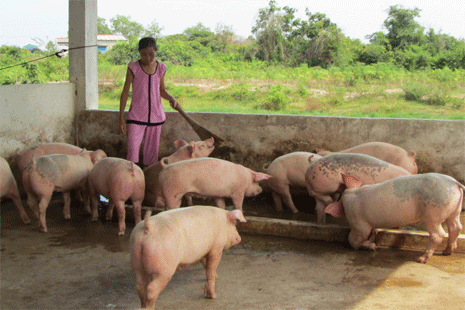Laos Suspends Pork Imports To Protect Local Farmers
Source: The Nation
The Livestock and Fisheries Department of the Ministry of Agriculture and Forestry has suspended the import of piglets and pork as Lao farmers are currently able to produce sufficient supply to meet domestic demand.
In its announcement, issued last month, the department said the domestic production of pork and piglets was sufficient for local consumption and there was even a surplus in Vientiane so meat could be supplied to the provinces.
The department urged all livestock and fisheries sections around the country, as well as pork producers and suppliers, to impose the ruling.
The illegal importation of pork and piglets affects pig producers and pig breeders, especially in Vientiane, and makes it difficult to balance meat supply.
The department said the ban would not lead to an unreasonable hike in the price of pork.
The announcement directed all provincial livestock and fisheries sections to strengthen veterinary inspections at borders and carry out strict checks to prevent the import of pork products.
People who violate the ruling will be fined by the authorities, while any pork or piglets that are imported illegally will be disposed of.
The announcement did not specify how long the suspension would last, but said those involved in the industry and members of the public should watch for announcements on when the ban might be lifted.
Pork is one of several items whose price is controlled and the government has set a maximum price to prevent traders from increasing their prices unreasonably.
Imported pork that is sold at a lower price than Lao pork causes problems for domestic pork suppliers and piglet producers when their sales drop.
World Trade Organisation (WTO) directives state that when imports have a severe impact on the local economy, a country can postpone imports but should set a deadline on the suspension unless there is no limit to the ban, according to the Department of Foreign Trade Policy under the Ministry of Industry and Commerce.
Many Lao farmers and suppliers have struggled to repay their bank loans after their business slumped because the market was flooded with imports.
Statistics from the Livestock and Fisheries Department show that 3 million pigs were raised across the country in 2013, a growth rate of 6 percent that year. The department says these numbers and a strengthening of the industry enable Laos to produce a surplus of pork for sale.

